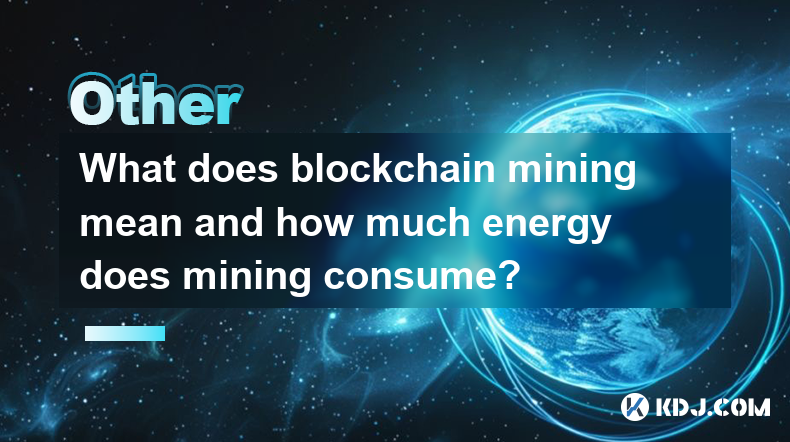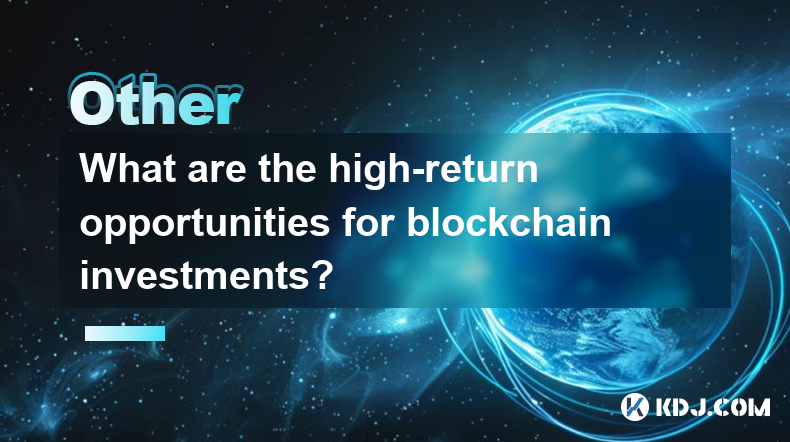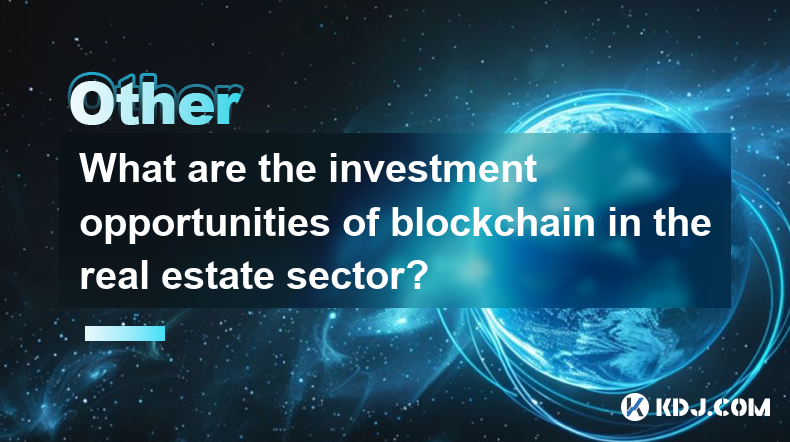-
 Bitcoin
Bitcoin $81,840.6210
6.04% -
 Ethereum
Ethereum $1,597.9638
8.58% -
 Tether USDt
Tether USDt $0.9994
-0.03% -
 XRP
XRP $2.0026
9.84% -
 BNB
BNB $577.3606
3.57% -
 USDC
USDC $0.9999
-0.02% -
 Solana
Solana $114.7371
7.77% -
 Dogecoin
Dogecoin $0.1562
6.85% -
 TRON
TRON $0.2403
4.67% -
 Cardano
Cardano $0.6240
9.32% -
 UNUS SED LEO
UNUS SED LEO $9.3881
2.70% -
 Chainlink
Chainlink $12.3852
9.23% -
 Avalanche
Avalanche $18.0989
9.18% -
 Toncoin
Toncoin $2.9979
-1.98% -
 Stellar
Stellar $0.2349
5.96% -
 Hedera
Hedera $0.1711
12.93% -
 Shiba Inu
Shiba Inu $0.0...01206
10.22% -
 Sui
Sui $2.1408
8.96% -
 MANTRA
MANTRA $6.7043
7.73% -
 Bitcoin Cash
Bitcoin Cash $297.9565
9.10% -
 Litecoin
Litecoin $74.3475
4.91% -
 Polkadot
Polkadot $3.5400
2.22% -
 Dai
Dai $1.0000
0.00% -
 Bitget Token
Bitget Token $4.2732
4.64% -
 Ethena USDe
Ethena USDe $0.9989
0.02% -
 Hyperliquid
Hyperliquid $13.9883
12.96% -
 Pi
Pi $0.5955
5.14% -
 Monero
Monero $204.2372
4.47% -
 Uniswap
Uniswap $5.1811
7.08% -
 OKB
OKB $53.3943
3.95%
What does blockchain mining mean and how much energy does mining consume?
Blockchain mining verifies transactions and adds them to the blockchain, but its high energy use raises environmental concerns and drives innovation in efficiency.
Apr 03, 2025 at 03:49 pm

Blockchain mining is the process by which transactions are verified and added to the public ledger, known as the blockchain. This process involves solving complex mathematical problems using computational power. Miners compete to solve these problems, and the first to succeed gets to add a new block of transactions to the blockchain, earning a reward in cryptocurrency. This process is crucial for maintaining the integrity and security of the blockchain network.
Mining is essential for decentralized cryptocurrencies like Bitcoin. It ensures that transactions are legitimate and prevents double-spending. Without miners, the blockchain would be vulnerable to attacks and fraud. The mining process also introduces new coins into circulation, which helps to incentivize miners to continue their work.
The energy consumption associated with blockchain mining is a significant concern. Mining requires substantial computational power, which in turn requires a lot of electricity. The energy consumption of Bitcoin mining, for example, has been compared to that of entire countries. This has led to debates about the environmental impact of mining and the sustainability of cryptocurrencies.
How Does Blockchain Mining Work?
Blockchain mining involves several steps. Miners use specialized hardware, such as ASICs (Application-Specific Integrated Circuits), to solve cryptographic puzzles. These puzzles are part of the proof-of-work consensus mechanism, which requires miners to find a hash that meets certain criteria. Once a miner finds a valid hash, they broadcast it to the network, and other nodes verify the solution. If the solution is correct, the miner is rewarded, and the new block is added to the blockchain.
- Miners collect transaction data from the network.
- Miners create a block of transactions.
- Miners compete to solve a cryptographic puzzle by finding a valid hash.
- The first miner to solve the puzzle broadcasts the solution to the network.
- Other nodes verify the solution. If valid, the block is added to the blockchain.
- The miner receives a reward in cryptocurrency.
The difficulty of the cryptographic puzzles adjusts periodically to ensure that new blocks are added at a consistent rate. This adjustment mechanism helps to maintain the stability and security of the blockchain.
What Hardware is Used for Mining?
Mining requires specialized hardware that can handle the intense computational demands. The most common hardware used for mining is ASICs, which are designed specifically for cryptocurrency mining. ASICs are much more efficient than general-purpose hardware like CPUs or GPUs, which were used in the early days of Bitcoin mining.
ASICs are highly optimized for the specific algorithms used in mining, such as SHA-256 for Bitcoin. They can perform the necessary calculations much faster and with less energy than other types of hardware. However, ASICs are expensive and can become obsolete if the mining algorithm changes.
Other types of hardware used for mining include GPUs and FPGAs (Field-Programmable Gate Arrays). GPUs are more versatile than ASICs and can be used for other tasks besides mining. FPGAs offer a middle ground between ASICs and GPUs, providing better performance than GPUs but not as specialized as ASICs.
How Much Energy Does Mining Consume?
The energy consumption of blockchain mining is a hotly debated topic. Estimates suggest that Bitcoin mining alone consumes around 120 terawatt-hours (TWh) per year, which is comparable to the annual energy consumption of countries like Norway or Malaysia. This high energy consumption is due to the intense computational power required to solve the cryptographic puzzles.
The energy consumption of mining varies depending on the cryptocurrency and the mining hardware used. For example, Bitcoin mining is known to be particularly energy-intensive, while other cryptocurrencies like Ethereum have started to transition to less energy-consuming consensus mechanisms like proof-of-stake.
Efforts are being made to reduce the energy consumption of mining. Some miners are turning to renewable energy sources, such as solar or hydroelectric power, to mitigate their environmental impact. Additionally, the development of more energy-efficient mining hardware and the adoption of alternative consensus mechanisms are being explored to address the issue of high energy consumption.
Environmental Impact of Mining
The environmental impact of blockchain mining is a significant concern. The high energy consumption associated with mining contributes to carbon emissions and can strain local power grids. In regions where coal is the primary source of electricity, mining can have a particularly negative environmental impact.
Some mining operations are located in areas with abundant renewable energy resources, which can help to mitigate their environmental impact. However, the overall energy consumption of mining remains a challenge. As the demand for cryptocurrencies grows, so does the energy required to mine them, leading to increased environmental concerns.
Efforts to address the environmental impact of mining include the use of renewable energy sources, the development of more energy-efficient hardware, and the exploration of alternative consensus mechanisms. These efforts aim to make mining more sustainable and reduce its environmental footprint.
The Role of Miners in the Blockchain Ecosystem
Miners play a crucial role in the blockchain ecosystem. They are responsible for verifying transactions and adding them to the blockchain, which helps to maintain the integrity and security of the network. Miners are incentivized to participate in the mining process through rewards in cryptocurrency, which helps to ensure that the network remains decentralized and secure.
Miners also play a role in the governance of the blockchain. They can vote on proposed changes to the protocol, such as upgrades or hard forks, by choosing which version of the software to run. This decentralized governance model helps to ensure that the blockchain remains resilient and adaptable to changing circumstances.
The mining process is competitive, with miners constantly seeking to improve their hardware and reduce their energy consumption to stay ahead. This competition drives innovation in the mining industry and contributes to the overall health and security of the blockchain network.
Challenges and Future of Mining
Blockchain mining faces several challenges, including high energy consumption, the risk of centralization, and the potential for regulatory scrutiny. The high energy consumption of mining has led to concerns about its environmental impact and sustainability. The concentration of mining power in the hands of a few large mining pools raises concerns about the potential for centralization and the security of the network.
The future of mining is likely to involve the development of more energy-efficient hardware and the adoption of alternative consensus mechanisms. Proof-of-stake, for example, is a less energy-intensive alternative to proof-of-work that is being adopted by some cryptocurrencies. The transition to proof-of-stake could help to reduce the energy consumption of mining and make it more sustainable.
Regulatory scrutiny is another challenge facing the mining industry. Governments around the world are grappling with how to regulate cryptocurrencies and mining operations. Regulations could impact the profitability and feasibility of mining, and miners will need to adapt to changing regulatory environments.
Common Questions About Blockchain Mining and Energy Consumption
Q: What is blockchain mining?
A: Blockchain mining is the process of verifying transactions and adding them to the blockchain. Miners solve complex mathematical problems to earn rewards in cryptocurrency and maintain the integrity of the network.
Q: Why is mining important for cryptocurrencies?
A: Mining is crucial for maintaining the security and integrity of the blockchain. It prevents double-spending and introduces new coins into circulation, incentivizing miners to participate in the network.
Q: How much energy does Bitcoin mining consume?
A: Bitcoin mining is estimated to consume around 120 terawatt-hours (TWh) per year, comparable to the annual energy consumption of countries like Norway or Malaysia.
Q: What hardware is used for mining?
A: The most common hardware used for mining is ASICs (Application-Specific Integrated Circuits), which are highly optimized for the specific algorithms used in mining. GPUs and FPGAs are also used.
Q: What efforts are being made to reduce the energy consumption of mining?
A: Efforts include the use of renewable energy sources, the development of more energy-efficient hardware, and the adoption of alternative consensus mechanisms like proof-of-stake.
Q: What is the environmental impact of mining?
A: The high energy consumption of mining contributes to carbon emissions and can strain local power grids. Efforts are being made to mitigate this impact through the use of renewable energy and more efficient hardware.
Q: What role do miners play in the blockchain ecosystem?
A: Miners verify transactions, add them to the blockchain, and help to maintain the integrity and security of the network. They are also involved in the governance of the blockchain.
Q: What are the challenges facing the future of mining?
A: Challenges include high energy consumption, the risk of centralization, and regulatory scrutiny. The future may involve more energy-efficient hardware and alternative consensus mechanisms like proof-of-stake.
Disclaimer:info@kdj.com
The information provided is not trading advice. kdj.com does not assume any responsibility for any investments made based on the information provided in this article. Cryptocurrencies are highly volatile and it is highly recommended that you invest with caution after thorough research!
If you believe that the content used on this website infringes your copyright, please contact us immediately (info@kdj.com) and we will delete it promptly.
- IRS Targets DeFi Platforms with New Reporting Rules
- 2025-04-10 17:35:13
- Byte Federal Suffers a Major Data Breach Exposing Data of Up to 58,000 Customers
- 2025-04-10 17:35:13
- EV3 Invests in Dtravel to Expand the DePIN Ecosystem
- 2025-04-10 17:30:13
- Bitcoin (BTC) Market Shows Mild Rebound, BTC Price Fluctuating in a Narrow Range
- 2025-04-10 17:30:13
- Bitcoin (BTC) and Ether (ETH) Exchange-Traded Funds (ETFs) Saw Outflows Wednesday Despite Cryptocurrencies' Price Surges
- 2025-04-10 17:25:13
- Standard Chartered Makes an Epic XRP Price Prediction
- 2025-04-10 17:25:13
Related knowledge

Is the ranking of Chinese blockchain apps real and reliable?
Apr 04,2025 at 09:01pm
The ranking of Chinese blockchain apps has become a topic of interest for many in the cryptocurrency community, as it provides insights into the popularity and adoption of blockchain technology within China. However, the reliability and authenticity of these rankings are often questioned. This article aims to delve into the factors that influence these ...

What are the future development trends of blockchain game development?
Apr 03,2025 at 05:00am
Blockchain technology has revolutionized various industries, and gaming is no exception. As we look to the future, several trends are set to shape the development of blockchain games. These trends not only promise to enhance the gaming experience but also to integrate blockchain technology more seamlessly into the gaming ecosystem. Let's explore these t...

What are the high-return opportunities for blockchain investments?
Apr 05,2025 at 02:35pm
Blockchain technology has revolutionized the financial world, offering numerous high-return investment opportunities. These opportunities span various sectors within the cryptocurrency ecosystem, including cryptocurrencies, decentralized finance (DeFi), non-fungible tokens (NFTs), and blockchain startups. Each of these areas presents unique risks and re...

What are the investment opportunities of blockchain in the real estate sector?
Apr 10,2025 at 04:08pm
The integration of blockchain technology into the real estate sector has opened up a plethora of investment opportunities. Blockchain, a decentralized and distributed digital ledger used to record transactions across numerous computers, ensures transparency, security, and efficiency in real estate dealings. By leveraging blockchain, investors can benefi...

What are the maintenance costs of blockchain system development?
Apr 03,2025 at 06:07pm
The maintenance costs of blockchain system development are multifaceted and depend on various factors. These costs can include technical maintenance, security updates, infrastructure expenses, and personnel costs. Understanding these elements is crucial for anyone planning to develop or maintain a blockchain system. Technical MaintenanceTechnical mainte...

What are the money-making models of blockchain games?
Apr 04,2025 at 02:00pm
Blockchain games have emerged as a revolutionary way for players to earn real money while enjoying their favorite pastime. These games leverage the power of blockchain technology to create unique money-making models that benefit both the players and the developers. In this article, we will explore the various money-making models of blockchain games and ...

Is the ranking of Chinese blockchain apps real and reliable?
Apr 04,2025 at 09:01pm
The ranking of Chinese blockchain apps has become a topic of interest for many in the cryptocurrency community, as it provides insights into the popularity and adoption of blockchain technology within China. However, the reliability and authenticity of these rankings are often questioned. This article aims to delve into the factors that influence these ...

What are the future development trends of blockchain game development?
Apr 03,2025 at 05:00am
Blockchain technology has revolutionized various industries, and gaming is no exception. As we look to the future, several trends are set to shape the development of blockchain games. These trends not only promise to enhance the gaming experience but also to integrate blockchain technology more seamlessly into the gaming ecosystem. Let's explore these t...

What are the high-return opportunities for blockchain investments?
Apr 05,2025 at 02:35pm
Blockchain technology has revolutionized the financial world, offering numerous high-return investment opportunities. These opportunities span various sectors within the cryptocurrency ecosystem, including cryptocurrencies, decentralized finance (DeFi), non-fungible tokens (NFTs), and blockchain startups. Each of these areas presents unique risks and re...

What are the investment opportunities of blockchain in the real estate sector?
Apr 10,2025 at 04:08pm
The integration of blockchain technology into the real estate sector has opened up a plethora of investment opportunities. Blockchain, a decentralized and distributed digital ledger used to record transactions across numerous computers, ensures transparency, security, and efficiency in real estate dealings. By leveraging blockchain, investors can benefi...

What are the maintenance costs of blockchain system development?
Apr 03,2025 at 06:07pm
The maintenance costs of blockchain system development are multifaceted and depend on various factors. These costs can include technical maintenance, security updates, infrastructure expenses, and personnel costs. Understanding these elements is crucial for anyone planning to develop or maintain a blockchain system. Technical MaintenanceTechnical mainte...

What are the money-making models of blockchain games?
Apr 04,2025 at 02:00pm
Blockchain games have emerged as a revolutionary way for players to earn real money while enjoying their favorite pastime. These games leverage the power of blockchain technology to create unique money-making models that benefit both the players and the developers. In this article, we will explore the various money-making models of blockchain games and ...
See all articles





















































































